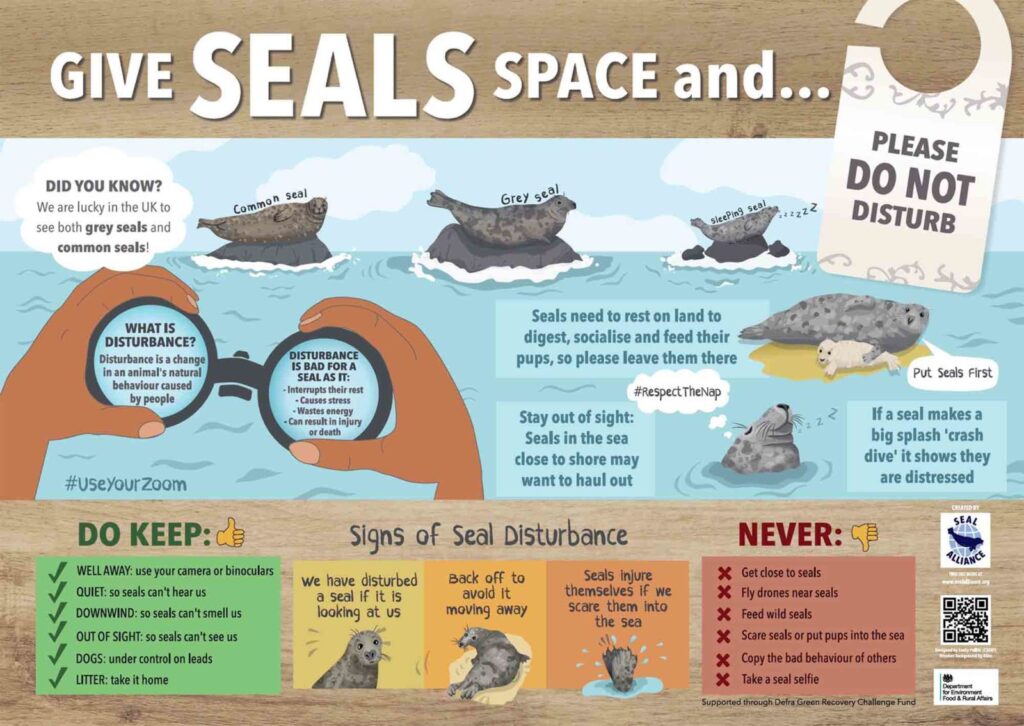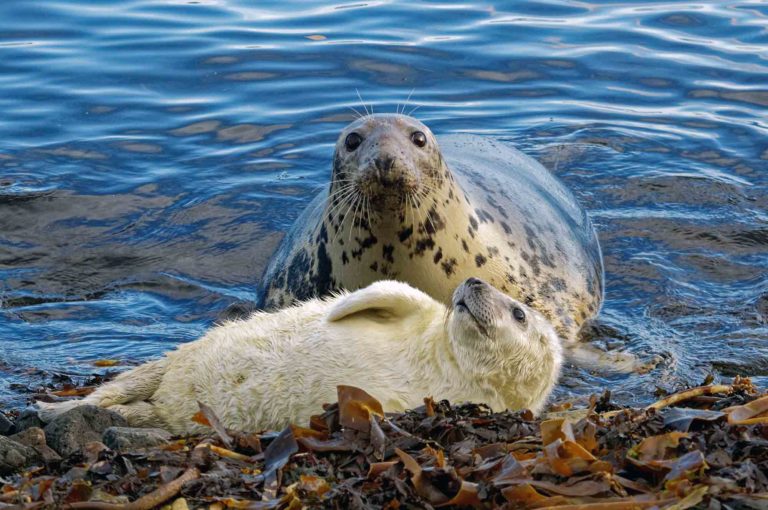Human disturbance of Britain’s seal population will become a criminal offence if a Bill put before Parliament last week passes into law. Proposed by Tracey Crouch, Conservative MP for Chatham & Aylesford, it had its first reading on 9 February.
The Seals (Protection) Bill would amend the existing Wildlife & Countryside Act 1981. It is already an offence to “take, injure or kill” a seal within 12 nautical miles of the British coast, but the amendment would also make anyone who intentionally or recklessly disturbs or harasses a seal guilty of an offence.
This would put seal protection on the same basis in British law as whales and dolphins, and it would not be a valid defence to claim that it was a person’s dog, vessel or drone that had disturbed the animals.
Britain is home to more than a third of the world’s grey seal population, Crouch told the House of Commons, explaining that as a globally rare species it was the equivalent of the African elephant. The UK also hosts 30% of European common seals, which she described as in “alarming decline”.
“I was thrilled to hear from the Zoological Society of London that the latest population survey estimated that 700 harbour seals and 3,000 grey seals live in the Thames estuary,” said Crouch.
“As a Medway MP, I was pleased to discover how many seals are drawn to the Medway and Swale estuaries to rest and pup on the excellent mudflats and salt-marsh habitat, due to the abundance of prey, including smelt and sea bass.” As the largest no-take fish zone in the UK, she said, the Medway was “the perfect restaurant for seals”.
Seals as top predators helped to maintain a balanced marine ecosystem, and could also contribute to coastal economies as tourist attractions, said Crouch, though they faced issues such as habitat loss and chemical and plastic pollution.

While such elemental threats required global solutions, tackling the human disturbance of seals – defined as any action that disrupts a seal from a settled state in response to a perceived threat – was something Parliament could achieve “with a minor tweak to existing legislation”.
Citing a dog attack on a popular seal near Hammersmith Bridge on the River Thames last year, Crouch said: “I know through my work with Mary Tester, a British Divers Marine Life Rescue medic who was in charge of Freddie, how he brought joy to the local community and visitors alike, especially during lockdown.
“The injuries that Freddie suffered, sadly, resulted in the decision being made to put him down.” The dog’s owner was barrister Rebecca Sabben-Clare QC. Although dogs are not required to be kept on leads in open spaces, it is illegal if they are deemed to be “dangerously out of control”, but the Metropolitan Police took no action.
In January this year an unnamed jogger in the North-east of England ignored the advice of seal stewards and approached a group of more than 100 seals resting on rocks, causing a stampede. The Yorkshire Seal Group later confirmed that his reckless behaviour would have caused numerous injuries and might have led to the deaths of some of the pups.
Whether intentional, reckless or negligent, disturbance causes stress and wastes seals’ vital energy reserves, often resulting in injury, said Crouch, while broken ribs or jaws could prove fatal.

Last spring the Government had worked with the Seal Alliance to launch the “Give Seals Space” awareness campaign, advising the public to stay well away from seals, never feed them, keep dogs on a lead and take all litter home.
In response to a parliamentary petition it had also confirmed that it would fund related signage on the banks of the Thames, which Crouch hoped would be extended to other locations such as Medway where seals could be endangered.
Thirty conservation organisations had previously signed a letter to the Prime Minister calling for urgent action on seal disturbance. With cross-party support for Crouch’s proposal, the Bill is expected to pass through its second reading on Friday, 18 March.

